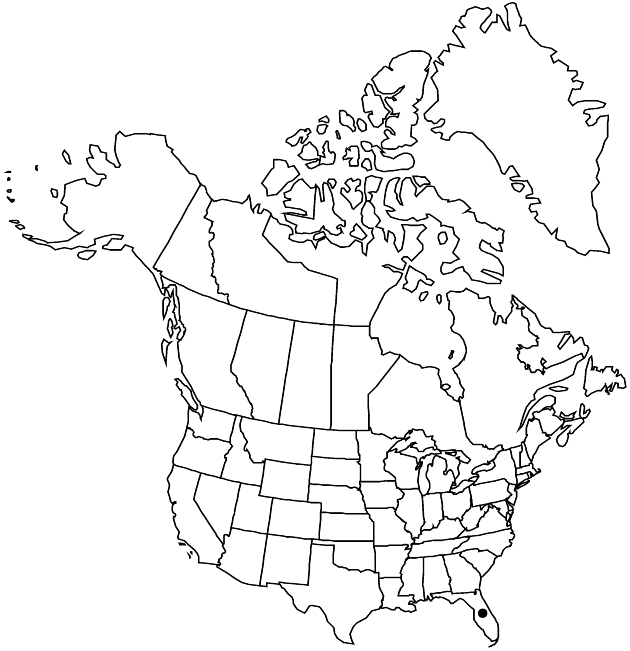Difference between revisions of "Chrysopsis latisquamea"
Proc. Biol. Soc. Wash. 13: 131. 1900.
FNA>Volume Importer |
imported>Volume Importer |
||
| (2 intermediate revisions by 2 users not shown) | |||
| Line 8: | Line 8: | ||
}} | }} | ||
|common_names=Pineland goldenaster | |common_names=Pineland goldenaster | ||
| + | |special_status={{Treatment/ID/Special_status | ||
| + | |code=E | ||
| + | |label=Endemic | ||
| + | }} | ||
|basionyms= | |basionyms= | ||
|synonyms={{Treatment/ID/Synonym | |synonyms={{Treatment/ID/Synonym | ||
| Line 50: | Line 54: | ||
|publication title=Proc. Biol. Soc. Wash. | |publication title=Proc. Biol. Soc. Wash. | ||
|publication year=1900 | |publication year=1900 | ||
| − | |special status= | + | |special status=Endemic |
| − | |source xml=https:// | + | |source xml=https://bitbucket.org/aafc-mbb/fna-data-curation/src/2e0870ddd59836b60bcf96646a41e87ea5a5943a/coarse_grained_fna_xml/V19-20-21/V20_482.xml |
|tribe=Asteraceae tribe Astereae | |tribe=Asteraceae tribe Astereae | ||
|genus=Chrysopsis | |genus=Chrysopsis | ||
Latest revision as of 20:03, 5 November 2020
Biennials or weak perennials, 40–70 cm; taprooted. Stems usually 1, erect, simple or branched from proximal to middle, proximally long-woolly, distally densely stipitate-glandular. Leaves: basal blades oblanceolate, 40–80 × 10–20 mm, apices obtuse, densely long-woolly; cauline blades elliptic to ovate, reduced distally, bases subclasping to clasping, margins entire, apices obtuse, mucronate, faces moderately to densely long-woolly (proximalmost less so), stipitate-glandular. Heads 10–60 (1–5 per branch) in lax to compact, corymbiform arrays. Peduncles 1–6(–10) cm, densely stipitate-glandular; bracteoles ovate to lanceolate, stipitate-glandular. Involucres campanulate, 8–11 mm. Phyllaries in 2–3 series, erect, oblanceolate, unequal, 1.5–2.5 mm wide, apices acute, stipitate-glandular. Ray florets 10–18; laminae 10–15 × 2–3.5 mm. Disc florets 30–35; corollas 6.5–8.5 mm, lobes 1 mm. Cypselae 2–3 mm, 2–6-ridged (ridges yellow to red-brown, translucent, narrow to broadly clavate), ribbed, sparsely strigose; pappi in 3 series, outer of linear scales 0.3–1 mm, inner of 30–35 bristles 7–9 mm, inner weakly clavate. 2n = 10.
Phenology: Flowering Aug–Oct (occasionally late spring).
Habitat: Sandy, open soils in pine woods, oak scrub, disturbed soils, road embankments, cleared lots
Elevation: 20–50 m
Discussion
Chrysopis latisquamea is found on the peninsula from Hillsborough County north. It occurs sympatrically with C. gossypina subsp. gossypina, which has narrower, eglandular phyllaries in that part of its range. Hybridization does not appear to be occurring.
Selected References
None.
